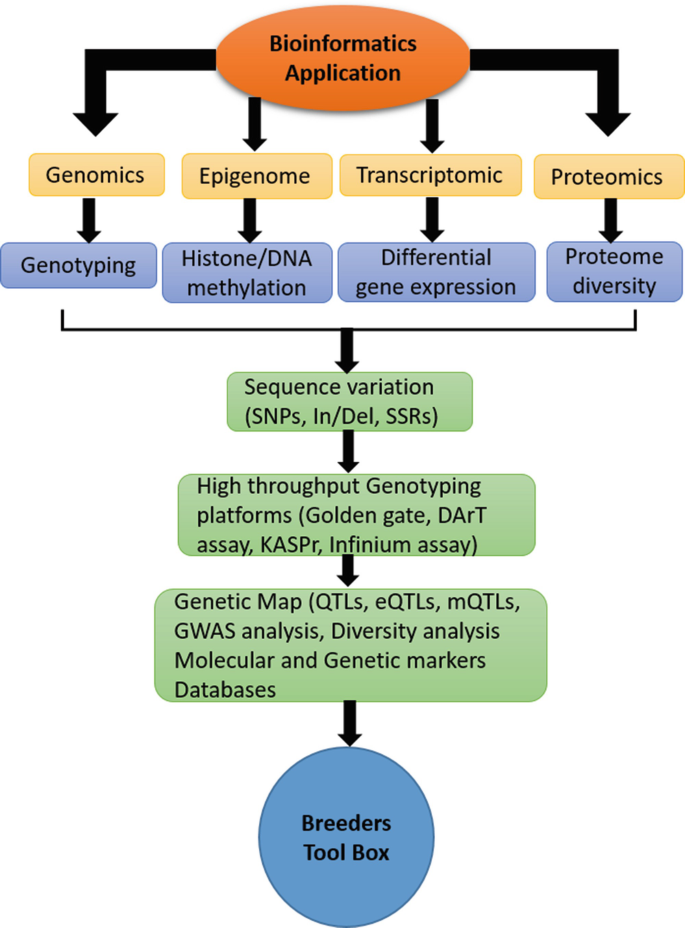What Does Bioinformatics Tutor Mean?
What Does Bioinformatics Tutor Mean?
Blog Article
The 15-Second Trick For Bioinformatics Tutor
Table of ContentsExcitement About Bioinformatics TutorOur Bioinformatics Tutor DiariesNot known Facts About Bioinformatics TutorSome Ideas on Bioinformatics Tutor You Need To KnowAn Unbiased View of Bioinformatics Tutor
Of the overall individuals involved in the training, 80% were pupils from public greater education institutions, while the staying 20% originated from private organizations. To get a certification of involvement, pupils were called for to participate in a minimum of 90% of the complete training hours. As a result of this demand, a remarkable 95% of the participants efficiently obtained their certifications, having not only satisfied the minimum presence criteria however also completed all designated activities throughout the training.
During the height of the COVID-19 pandemic, especially between June and August 2020, the project group was charged with arranging specialized training in bioinformatics. This training was particularly targeted at students from the research team Center for Study in Applied Computer at the Federal College of Pará (UFRA) The adaptation to remote knowing platforms because of the pandemic developed a possibility to discover new mentor methodologies and digital devices that improved both reach and effectiveness.
This training course was designed to supply an available yet detailed overview of Artificial Intelligence techniques, specifically as applied in bioinformatics (Bioinformatics Tutor). This virtual format enabled participation from pupils throughout Brazil, several of whom might not have had the possibility to participate in in-person sessions.
The smart Trick of Bioinformatics Tutor That Nobody is Discussing
Around 50% of the complete training hours were committed to useful activities where pupils constructed intelligent designs and applications in a range of scientific domain names, consisting of genetics, molecular biology, and ecological information evaluation. These platforms allowed students to engage in real-time information control, version training, and algorithm testing.
The course brought in 80 participants in total. Sixty of them were affiliated with various college organizations in the state of Pará, while the staying twenty came from organizations located in 5 various other Brazilian states. This broad geographical representation highlighted the national passion in bioinformatics and the growing demand for specialized skills in this location. By introducing Expert system in a relevant and practical context, the campaign served to connect the space between theory and real-world application, providing trainees with a strong foundation for future research study or work in the area.
The training campaign developed part of a broader academic outreach effort called the Bioinformatics when driving task. This project has, for many years, presented loads of trainees to recommended you read the globe of bioinformatics and computational biology. The events held under this umbrella effort have actually occurred throughout several areas and years, as summarized in Table 1 (Listing of events, places, years, and overall varieties of trainees and instructors)
Several of these teams, originally brought together by their involvement in training occasions, have given that gone on to produce independent scientific research study in collaboration with neighborhood academic establishments. The training not only fostered scientific reasoning within the context of bioinformatics however also sparked collective connections that prolonged past the training atmosphere.
The Only Guide to Bioinformatics Tutor
The very same group, excluding IH and RR, likewise acted as tutors for the practical training components. Funding for the task was supplied through the give 88887.200562/ 2018-00 from CAPES.
The Federal University of Pará's Office of Research study (PROPESP/UFPA) also supplied financial backing, particularly for the production of the final manuscript. The authors state no financial or business problems of passion that can have influenced the research study. All opinions and analyses revealed in this article are entirely those of the authors and do not always mirror those of their corresponding organizations, the author, editors, or customers entailed in the publication procedure.

4 Easy Facts About Bioinformatics Tutor Explained
From an instructional point of view, the training technique made use of in the training was intentionally interactive. their explanation Courses were conducted in a manner that urged pupil engagement and conversation, going beyond memorizing memorization to check out just how concepts are established, applied in day-to-day live, and examined in academic setups. The training ideology focused on supporting both strong and having a hard time pupils, giving individualized assistance, and structure confidence via sustained mentorship and persistence.

Each group, containing around 36 participants, was supported by 3 advisors-- the majority of whom were postdoctoral researchers with specific knowledge. These coaches not only aided make the team projects but additionally promoted their implementation, ensuring that each research study question was both relevant and suitably tough. The objective was to provide a naturally sensible context that individuals could check out through open-ended goals and access to curated datasets.
For additional understandings into the method and results of this project-based knowing approach, viewers are guided to S1 Text, that includes detailed summaries of the pedagogical structure, assessment strategies, and job styles used in the training sessions.
The Main Principles Of Bioinformatics Tutor
Of the overall individuals involved in the training, 80% were trainees from public greater education and learning organizations, while the remaining 20% came from personal establishments. To qualify for a certificate of engagement, students were needed to participate in see post at least 90% of the total training hours. Significantly, past the students that enlisted in the training sessions, 7 experienced trainers got involved in providing the courses, while three specialized study professors worked with the total training process. Approximately 50% of the total training hours were devoted to functional tasks where students developed intelligent designs and applications in a range of scientific domain names, including genes, molecular biology, and ecological data evaluation. The training not only fostered clinical reasoning within the context of bioinformatics however also sparked collaborative relationships that extended beyond the training environment.
Report this page